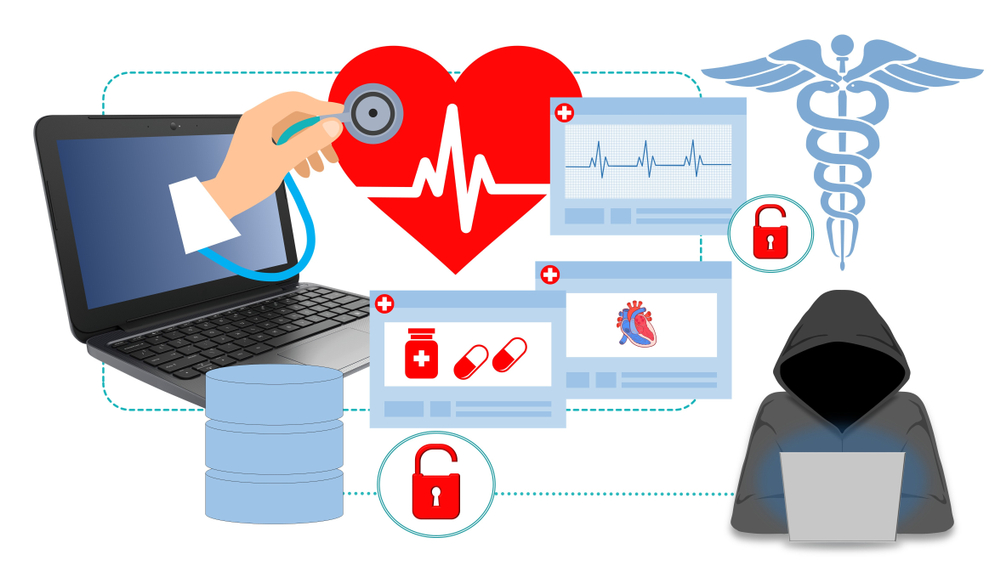Cybercrime and healthcare… One might think what a weird combination – right? However, I have to disappoint you. It is a cruel reality.
But let’s start at the beginning… the enabler: It is, what a ’surprise’, the increasing use of technology in the healthcare industry. But using technology does not only imply risks. We all know how beneficial technology in healthcare is. No matter which technology, it (most of the time…) all comes down to an increase in efficiency and effectiveness (AIMS Education 2019). Furthermore, those improvements aim to increase our quality of life while, hopefully, reduce its costs (AIMS Education 2019).
One of the easiest and best examples of technological adoption in healthcare is the digitalization of health records (Online Health Informatics 2020). Do you remember one of your doctors using a paper record? No? Me neither. This example might sound too simple to be true. However, digital healthcare records had a positive impact on not only the quality of public healthcare but also its costs. Those records can be communicated through the Internet of Things (IoT) within hospitals and stored in, e.g., clouds (Jayaraman et al. 2019).
The consequences are tremendous: Due to the sensitivity of medical data, its value is constantly increasing, making it a vulnerable target for cybercrime (Jayaraman et al. 2019). To get a glimpse of how valuable healthcare records are; it is up to 20x higher when compared to credit card details…
Cybercrime – two real-world examples and its dramatic consequence(s): The most recent (known) happened this Monday (28/09/20). The American hospital chain ‘Universal Health Services’ with its over 250 hospitals experienced an IT outage due to a cyberattack – causing no access to medical records and everything connected to WiFi (including the devices that monitored critical care patients) (CBS News 2020). Luckily, this cyber attack had no fatalities. The latter, however, happened two weeks earlier to a hospital in Düsseldorf, Germany. There, a cyberattack caused the death of a critical patient (The Guardian 2020)…
Even though it is highly unethical to put monetary gains over human life; I do personally think that this trend will continue. The increasing use of interconnected devices in healthcare will create even more sensitive data which will make it an even more attractive target to hackers…
What do you think? Will this trend will continue, or are technological enhancements, such as blockchain, chances to put an end to it? Let me know in the comments!
References:
AIMS Education. (2019). The Impact Of Technology In Healthcare. [online] Available at: <https://aimseducation.edu/blog/the-impact-of-technology-on-healthcare> [Accessed 1 October 2020].
CBS News. (2020). Cyberattack Hobbles Hospital Chain Universal Health Services. [online] Available at: <https://www.cbsnews.com/news/cyberattack-universal-health-services-hospital-chain-united-states/> [Accessed 1 October 2020].
Jayaraman, P. P. et al. (2020) “Healthcare 4.0: A Review of Frontiers in Digital Health,” Wiley Interdisciplinary Reviews: Data Mining and Knowledge Discovery, 10(2).
Online Health Informatics. (2020). 5 Ways Technology Is Improving Health. [online] Available at: <https://healthinformatics.uic.edu/blog/5-ways-technology-is-improving-health/> [Accessed 1 October 2020].
The Guardian. (2020). Prosecutors Open Homicide Case After Cyber-Attack On German Hospital. [online] Available at: <https://www.theguardian.com/technology/2020/sep/18/prosecutors-open-homicide-case-after-cyber-attack-on-german-hospital> [Accessed 1 October 2020]

